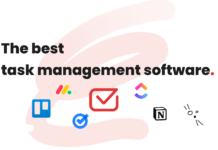
What is Microsoft Dynamics CRM?
Microsoft Dynamics CRM is one of the best Customer Relationship Management tools that help organisations deal with all customers from a single dashboard. As the name suggests, CRM is a platform built to manage interactions with customers on behalf of the company. Microsoft Dynamics CRM is capable of managing and automating marketing, sales, customer management, customer service, support services, and more. CRM works in real-time that helps the employees to understand and resolve the customer issues in no time. All such features and benefits help the company gain customer loyalty and reliability.
The Microsoft Dynamics CRM generally focuses on three of the company’s central departments, i.e., Marketing, Sales, and Customer Service. Such software solutions help the company to drive more sales using fewer resources and become productive when it comes to customer management. Also, it provides several features to the employees like providing sales reports, data about marketing campaigns, social insights, engagement ratio, Return over investment, and more. In short, the Microsoft Dynamics CRM is a power pack solution to manage the entire customer’s relationship with the company.
Suppose you want the process to manage and provide instant support to your customer to be smooth and reliable. In that case, you must set up the Microsoft Dynamics CRM for your company. Generally, there are two ways to set up this solution, CRM Online, and CRM on-premises.
CRM Online
The servers in CRM Online are located in clouds, making them easy to operate by Microsoft. All the business processes and data storage will be hosted online, making the entire customer relationship smooth and hassle-free from anywhere and anytime.
The cloud CRM makes the processes like version updates, servers upgrade, deployment, managing databases, and licensing controlled by Microsoft or the vendor partner. This makes the admin focus more on business than managing such hectic tasks.
The license of cloud CRM is available to users on a subscription basis, where they have to pay the monthly fee as per the selected package or features. If you want to buy a subscription to Dynamics CRM, you need to purchase the license of Microsoft Dynamics 365. After the 2018 update, Microsoft provides all the tools like CRM, Azure, Power BI, and more in a package. These tools are made to help any business manage all departments, whether a financial department or human resource.
CRM On-Premises
If you need a lot of customizations for your business, Dynamics CRM On-Premises will work like a charm for you. It allows the company to manage everything by hosting the CRM and the database on its own servers. This lets to manage all the updates, upgrades, deployments, customizations, licensing, backup, hardware setup, and more for your Dynamics CRM. With all the flexibilities of on-premises deployment, it also comes with many drawbacks. In case of an update or upgrade, you need to manually manage the whole process, which causes a financial and mental burden. The On-premises deployment works best for the organisation that wants to manage the customer’s needs from the company premises only and for the people who are a little concerned about data security and safety.
Difference between Online and On-premises Dynamics CRM
There are many differences between these two deployments, but no one is good than the other. Each of these deployments fits a specific business type. For a business where more customizations are needed as per the needs, On-premises would work great. On the other hand, if you want your Microsoft Dynamics 365 vendor to manage all the backend processes, cloud CRM would work great. Some other fundamental differences of these deployments are listed below:
| On-Premises CRM | Cloud CRM |
| The customer manages databases and servers. | Due to cloud storage, all the databases and servers are managed by Microsoft itself. |
| More customization and extensions are available. | Less customizations are available |
| The customer has to bear all the set up costs. | Customers pay the licensing fee as per the chosen plan and avail all the services from day one. |
| Due to the availability of Manual database backup, there is no need to depend on any one. | Microsoft automatically backups each customer’s data daily and will provide it in case of need without any extra cost. |
| The data storage limit directly depends on the hardware you are using. You can increase or decrease as per needs. | As per the chosen plan, it has limited data storage, like 10 GB, 20 GB, or more. |
| Some of the standard features are Social listening, user insight, analytics, and more | You have to pay if you want to avail such features. |
| The customer has to update the version manually makes it a financial and mental burden. | It comes with automatic updates and upgrades for all version without bothering the user. |
| Set up cost is high. Though it is a one-time cost, it is way higher than a cloud solution. | No setup cost. Pay the subscription fee and start using Dynamics 365. |
Some Main Functions of Microsoft Dynamics CRM
There are four main functions of Dynamics CRM to ease your customer management journey. These functions are discussed below:
Sales:
There is a saying in sales and marketing that you must start the sales before your product even exists for a business. This is the best strategy to get a market overview and find the demand of your targeted audience. Using Dynamics CRM, sales and lead generation management become smooth and effective. This makes your team effective in generating more sales and revenue for your business. Also, this platform makes the communication between the sales team and the customer transparent making the whole process valuable and productive.
Marketing:
Marketing is all about customer engagement with the company. The marketer has to run several campaigns, execute plans, build strategies, and measure reports to make the product visible to the targeted customers. Microsoft Dynamics CRM helps the marketer manage all such tasks from one dashboard without any delay. This CRM helps accelerate the marketing plan to get more in less resources. Microsoft Dynamics 365 for Marketing helps the whole team to work collaboratively for the company’s growth. This makes the teamwork smooth and easy to execute.
Customer Service:
Microsoft Dynamics CRM provides best-in-class customer service management with the needed tools and features. Also, it tracks all the support requests and data about case resolutions to minimize the human efforts to close one request. Dynamics CRM provides the flexibility to cater the services to its users from anywhere and anytime dynamically. The sales team can manage the data of a customer or a customer group from one screen, and the updates take place in real-time.
Social Engagement:
This function manages social engagement, brand presence, and social campaigns. The Social Engagement feature of the Dynamics CRM lets the marketer track all social data related to its customers. Even with this feature, marketers can work across sales and customer services. It helps the user understand the company’s social scenario and the exact thing the customers are looking for in a social campaign. Dynamics CRM helps the users manage all social platforms and connect with the customers with ease.
Microsoft Dynamics 365 as a new CRM
After the update of 2018, Microsoft has combined most of the tools in one place with the name Microsoft Dynamics 365 Business Central. This is a combined version of a business management tool used to run a business from one place. Dynamics 365 consists of the tools like Microsoft Dynamics NAV, Microsoft Dynamics CRM, Office 365, Cortana, Power BI, Microsoft Azure, and Azure lOT. Microsoft is seamlessly working to make the business run smoothly and efficiently, growing and scaling fast.
Dynamics Square has been helping the industries to deal with Microsoft CRM and Microsoft Dynamics 365 upgrade processes. If you are struggling to update the version of Dynamics 365 Business Central or Dynamics NAV, you can book a call with the team of Dynamics Square to make things work.








